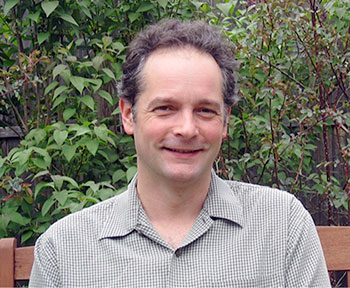About Eric
 Eric Heintz is a Licensed Clinical Professional Counselor (LCPC) and Licensed Alcohol and Drug Counselor (LADC). Eric has extensive experience working with adults and adolescents around the issues of depression, anxiety, ADHD, phase-of-life transitions, and substance abuse. He serves clients in Westbrook, Portland, and the Greater Portland, Maine, areas.
Eric Heintz is a Licensed Clinical Professional Counselor (LCPC) and Licensed Alcohol and Drug Counselor (LADC). Eric has extensive experience working with adults and adolescents around the issues of depression, anxiety, ADHD, phase-of-life transitions, and substance abuse. He serves clients in Westbrook, Portland, and the Greater Portland, Maine, areas.
Eric became interested in neurofeedback while researching available strategies for addressing ADHD. He has trained with Dr. Ed Hamlin of The Center for the Advancement of Human Potential, and has ongoing supervision under Dr. Hamlin, who is a renowned authority in the field. Eric has also served on the Maine State Youth Court Advisory Board.
Eric continues to offer traditional talk therapies in his practice, in addition to providing neurofeedback services. Eric’s work is grounded in the principles of mindfulness and cognitive-behavioral techniques. He believes that we each have the capacity for self-healing, and that we can rely upon our own wisdom as we heal and transform our lives. The focus and intention of his professional life is to support people on this path.
My Interest in Neurofeedback
I first became aware of neurofeedback while working with teenagers dealing with substance abuse. Most of these teens had co-occurring diagnoses, usually ADHD and/or some variation of depression and anxiety. Many of those individuals had difficulty taking the cognitive-behavioral strategies we discussed out into the world and using them effectively. The explanation for this was most likely that these clients had less-than-optimal access to their cerebral cortex (or ‘higher brain’), particularly their frontal lobes—an area in the brain responsible for executive functioning and relating to such activities as planning, judgment, emotional regulation, and memory, among others.
I am truly excited to offer this service, which I feel that sooner than later will be as mainstream as yoga, massage, or organic foods. It is a gentle and supportive process that helps guide us into a more optimal frame of mind. Despite the exotic terminology, there is nothing particularly mysterious about how NFB works. What we think about tends to dictate how we feel (and behave). If we think nothing but anxious thoughts, we are going to feel anxious; if we think a lot of angry thoughts, we feel angry, and so on. Likewise, if we spend time cultivating mental patterns associated with calm and focused states of mind, those new habits will strengthen, and supplant old ones. NFB is simply a method for cueing us in to when we are creating those new habits, habits that become self-reinforcing as new neural pathways strengthen and we interact more positively with our world.
 My experience as a long-time practitioner of Buddhist meditation has taught me that conditions like anxiety and depression are not solid, permanent, unchangeable states. Rather they are more like habits of the mind—and neural patterns in the brain—that become deeply entrenched, so entrenched it can seem like there is no other way of experiencing our mind or our world. It has been a tremendous relief to discover that I don’t need to be intimidated by my own mind or at the mercy of its occasional wildness, and that it is possible to form new habits. But this sort of meditation practice takes discipline and long-term commitment, the very resources clients often lack. So when, at a Trauma Center Conference in Boston, I heard Dr. Bessel van der Kolk describe NFB as “Buddhist meditation on steroids” and discuss how it could address the hijackings discussed above, I saw an opportunity to bring the long-term benefits of meditation and mindfulness to a shorter-term clinical setting. I felt that NFB could be helpful to a wide range of clients, from high-functioning individuals seeking peak performance to those who were too distressed to utilize the cognitive-behavioral strategies of talk therapy.
My experience as a long-time practitioner of Buddhist meditation has taught me that conditions like anxiety and depression are not solid, permanent, unchangeable states. Rather they are more like habits of the mind—and neural patterns in the brain—that become deeply entrenched, so entrenched it can seem like there is no other way of experiencing our mind or our world. It has been a tremendous relief to discover that I don’t need to be intimidated by my own mind or at the mercy of its occasional wildness, and that it is possible to form new habits. But this sort of meditation practice takes discipline and long-term commitment, the very resources clients often lack. So when, at a Trauma Center Conference in Boston, I heard Dr. Bessel van der Kolk describe NFB as “Buddhist meditation on steroids” and discuss how it could address the hijackings discussed above, I saw an opportunity to bring the long-term benefits of meditation and mindfulness to a shorter-term clinical setting. I felt that NFB could be helpful to a wide range of clients, from high-functioning individuals seeking peak performance to those who were too distressed to utilize the cognitive-behavioral strategies of talk therapy.
I look forward to our work together.
Eric Heintz, LCPC, LADC, BCN
